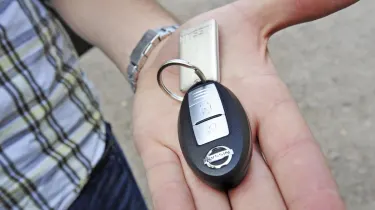
Drivers are missing out on new cars that should arrive in time for Christmas, because car companies can’t afford the penalties for registering too many petrol-powered models under the government’s ZEV Mandate.
The startling revelation comes from Robert Forrester, the chief executive of one of the UK’s leading car retailing chains, Vertu Motors PLC.
“We have petrol cars in compounds which have been sold to customers, but the keys cannot be handed over because manufacturers, understandably, want to avoid fines at the end of this year,” the frustrated boss reveals. “Christmas is coming and there will be thousands of car customers of different dealerships around the UK who cannot take delivery of their cars because they are being held over until January and the new ‘quota year’. It’s rationing by the back door.”
Forrester leads the fourth largest automotive retailer in the UK with a network of 202 sales outlets. He’s an outspoken critic of the ZEV Mandate, and has lambasted the government in an opinion written exclusively for Auto Express [link to opinion please] in which he says government policy “risks destroying the UK car industry for good”.
“My own firm leads the sector in the number of EVs it sells, but it is still nowhere near the government’s arbitrary targets,” he says. “Ministers have only talked to manufacturers and have spurned all my requests for a meeting to explain the consequences for your neighbourhood car dealer.”
It’s not clear which manufacturers might be strong-arming dealers to delay deliveries to customers, but it’s certainly true that some manufacturers are doing better than others when it comes to meeting the 2024 ZEV Mandate, which states that 22 per cent of their total sales across the year must be zero-emission electric models.
The baseline is 22 per cent, but individual brands have been awarded varying reductions in their own targets, based on how well they were performing against the previous regime of CO2-reduction measures that pre-dated the ZEV Mandate. For example Stellantis has achieved the 2024 ZEV Mandate target with its November year-to-date result - a 19.2% EV mix for cars and 8.6% for vans.
Stellantis told us the targets “have been achieved at significant cost to the company this year and by changing our business model in the UK”. We’ve reported previously the pledge from recently-ousted boss Carlos Tavares that Stellantis wouldn’t pay ZEV Mandate fines, and the ‘significant cost’ referred to in the latest statement points to an expensive package of incentives to boost EV sales, and the loss revenue from reduced supply of petrol cars in the UK revealed by the group’s diminished market share.
However, while Stellantis has rowed back on the supply of petrol cars, we’re told there’s no policy of holding up deliveries of cars already sold to customers. VW too told us it is “absolutely not” doing that, while Toyota says it’s “business as usual in terms of sales and deliveries”.
Mazda, which currently only manages a five per cent EV sales figure and is thus way off meeting its ZEV Mandate commitments, told us it isn’t holding up deliveries of customer cars, either: “We continue to offer a powertrain mix of petrol, diesel, HEV, PHEV, R-EV and BEV, recognising the current consumer attitudes and the significant differences between the fleet and retail channel demand,” a spokesperson said.
Forrester himself won’t be drawn on the names of any brands who are holding up deliveries, but with a review of the ZEV Mandate promised by the government in January, it’s clear the pressures are building right across the automotive sector. As one insider told us, “this is what you get with a 22 per cent target and EV demand at its current level. In a couple of weeks (Jan 2025) the target jumps to 28 per cent. Demand won’t change suddenly, so what’s going to happen then?”
